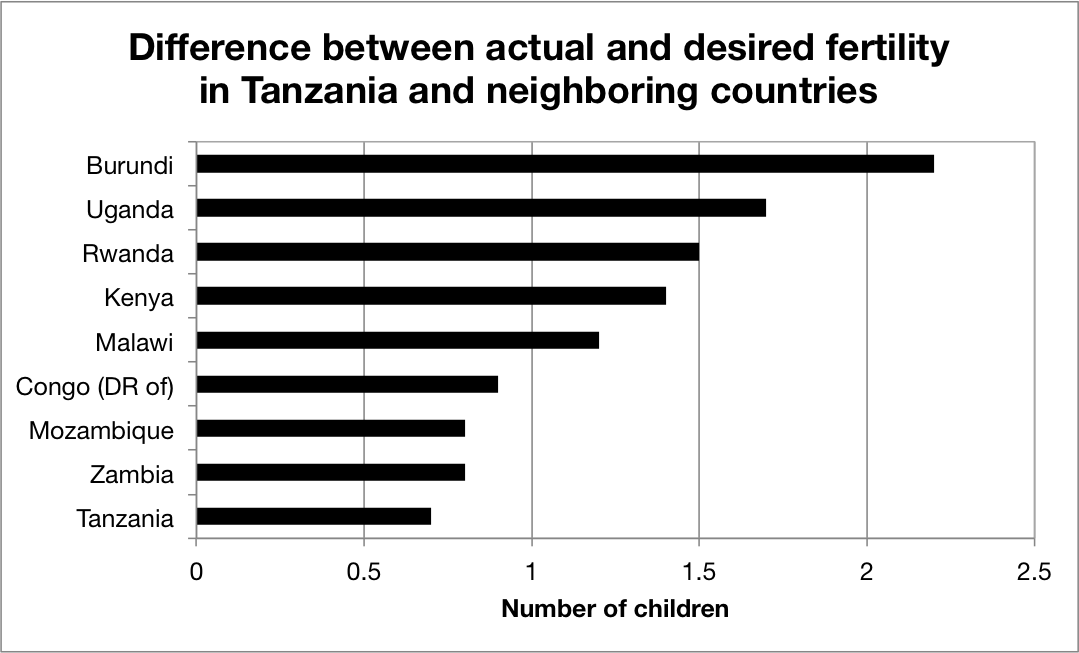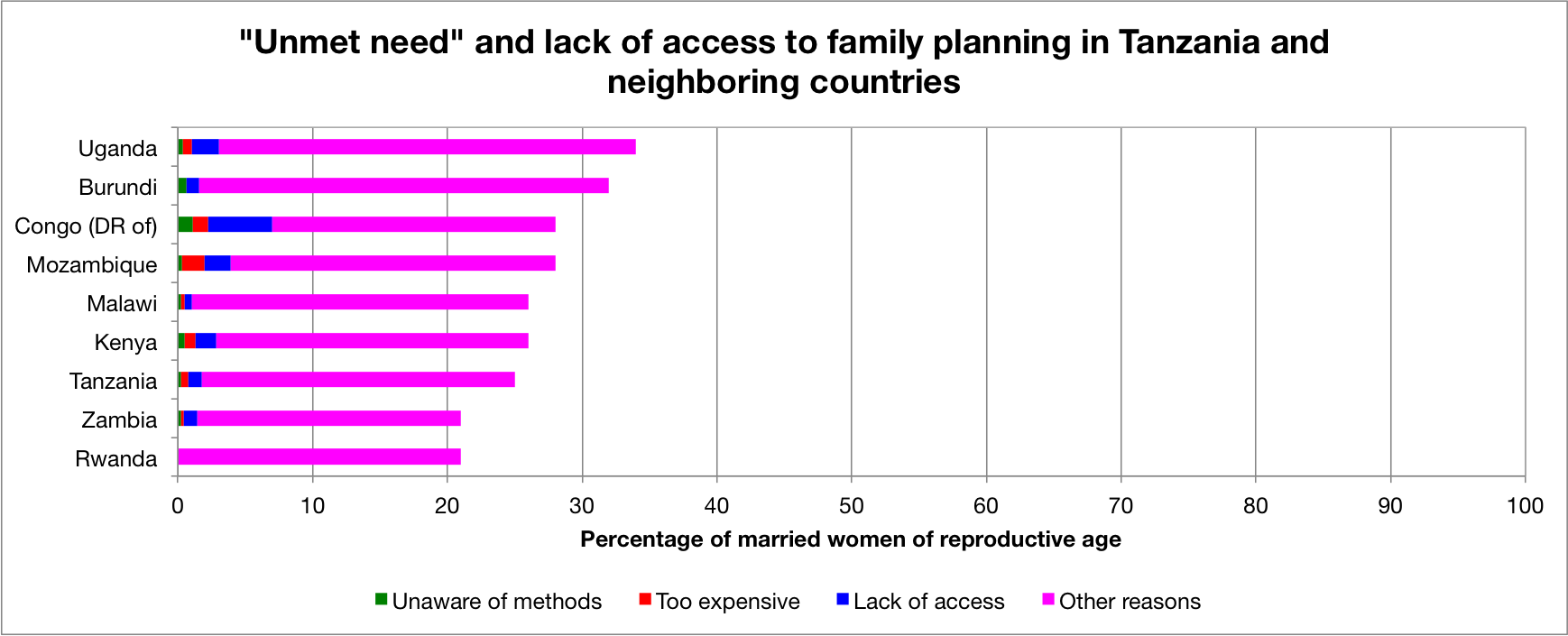Putting Tanzania’s family planning announcement into perspective
As my colleague, Lisa Correnti, wrote in this week’s Friday Fax article, the president of Tanzania has placed restrictions on foreign funding for contraceptive advertising in his country. Before delving into some of the relevant data, let us first consider a hypothetical situation:
Suppose a collection of donors and policy advocates looked at your local community and decided that a lot of the people there would benefit from being punched in the face. Working with the local government, they brought in a group of professional pugilists and used print media, TV, and radio to create awareness of their services. But, shockingly, the locals weren’t terribly keen. Lots of people objected to violence on principle, some questioned the benefit, and others disliked the pain, perhaps after trying it once. For the few that were into it, the professionals were happy to oblige, while secretly longing for the bygone days when they could just smack people with impunity without the bother of informed consent.
 Undeterred, the advocacy groups generated radio and TV dramas that prominently featured fist-to-jaw action. (I think I saw one of their creations once—a Western, if I remember correctly.) Meanwhile, they enlisted the help of an organization that combined data crunching with a love of face-punching: the Gobsmacker Institute. Gobsmacker analysts sidestepped the problem of low actual demand by generating a new category of potential demand: those with punchable faces they could characterize as really, really asking for it. Or, if you’re German, Backpfeifengesicht. Except they weren’t actually asking—most had pretty strong objections—but who reads the fine print?
Undeterred, the advocacy groups generated radio and TV dramas that prominently featured fist-to-jaw action. (I think I saw one of their creations once—a Western, if I remember correctly.) Meanwhile, they enlisted the help of an organization that combined data crunching with a love of face-punching: the Gobsmacker Institute. Gobsmacker analysts sidestepped the problem of low actual demand by generating a new category of potential demand: those with punchable faces they could characterize as really, really asking for it. Or, if you’re German, Backpfeifengesicht. Except they weren’t actually asking—most had pretty strong objections—but who reads the fine print?
At some point, the leaders of the community conclude that all this emphasis on face-punching is not yielding the promised dividends, and so they put a stop to all the foreign funding for advertising. They aren’t barring the professional pugilists from operating their establishments, but neither are they willing to subject their citizens to endless marketing for knuckle sandwiches.
Now, back to Tanzania and contraception. As in my analogy, the restrictions are on advertising funding, not the actual provision of services people want. But groups like Amnesty International, who have gone far afield of their original mission to safeguard the human rights of the vulnerable, are screaming about it as an attack on rights, intimidation of service providers, and a threat to accessing services. Unless there is an unenumerated right to be blasted with advertisements for things you either don’t want or are already using, nothing of value is being lost here.
But what do family planning advocates hope to accomplish in Tanzania? What problem are they looking to solve? Let’s look at some of Tanzania’s demographic factors in comparison to the multiple countries that border it (All data courtesy of the Gobsmacker, er, Guttmacher Institute.)

As we can see here, Tanzania and its neighbors have high actual fertility and high desired fertility compared with global averages. We can compare these two values with each other to get a sense of how effectively families are regulating their fertility to match their desires:

As we see, Tanzania is actually ahead of its neighbors in narrowing the gap between intentions and reality.

Once again, when it comes to “unmet need” for family planning and the amount of it attributable to things like access, cost, and lack of knowledge, Tanzania is typical of its neighbors, in that these are fairly negligible.
So, this isn’t about the denial of services for which there is a demand and a right of access, it is purely about marketing. The purpose of these family planning ads is not to meet a demand, but to generate one. Those who create and fund these ads have the point of view that more women in Tanzania should use contraceptives and have fewer children. Others, including their president, have a different view. Ultimately, the demographics of family formation in Tanzania is a matter for the families themselves, the Tanzanian government, and finally other outside stakeholders, in that order. The data show that Tanzanian families are exercising their rights to plan their families in accordance with their wishes, and this policy does not adversely affect their ability to do that. The government has the right to set standards for advertising to its citizens. And if the global family planning lobby has a problem with any of this, tough luck. For now, their ads are as welcome there as a punch in the face.
View online at: https://c-fam.org/turtle_bay/putting-tanzanias-family-planning-announcement-perspective/
© 2025 C-Fam (Center for Family & Human Rights).
Permission granted for unlimited use. Credit required.
www.c-fam.org

